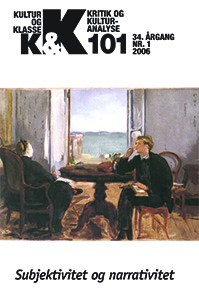Fænomenologi og strukturalisme
DOI:
https://doi.org/10.7146/kok.v34i101.22332Nøgleord:
Fænomenologi, strukturalisme, Håndværkeren og filosoffenResumé
Eller: Håndværkeren og filosoffen
Phenomenology and Structuralism
This paper traces the changes in the French phenomenologist Merleau- Ponty’s ideas of language and cognition during the 1940s and 50s. In the mid-40s he is under the spell of the new French Hegel interpretation heralded by Alexandre Kojève and Jean Hippolyte since the late 1930s. Gradually, as Cl. Lévi-Strauss, starting in the late 1940s, demonstrates that he is able to rejuvenate the Durkheim-Mauss tradition in French intellectual life by way of inspirations from structuralist linguistics, Merleau-Ponty takes up reading Saussure and other founding fathers of structuralism. By 1960, when he welcomes Lévi-Strauss into the Collège de France, Merleau-Ponty seems to be close to a structuralist concept of language. But then again, in 1962 young Derrida presents a radical re-reading of Husserl leading up to his well-known attack a few years later on Lévi-Strauss and structuralism, thus swinging back the pendulum between two competing strands in French thought in the 20th century.
Downloads
Publiceret
Citation/Eksport
Nummer
Sektion
Licens
Tidsskriftet følger dansk ophavsret.





